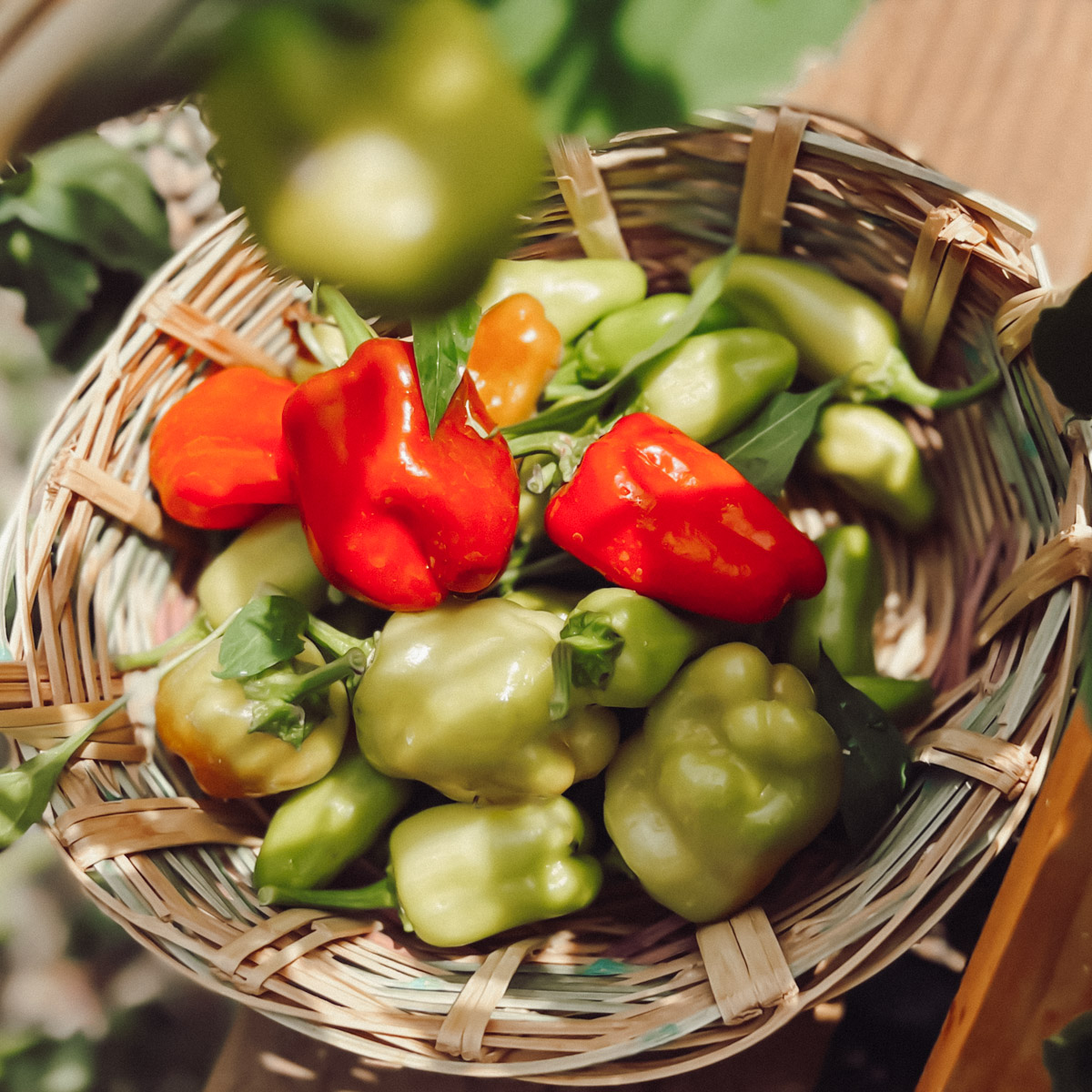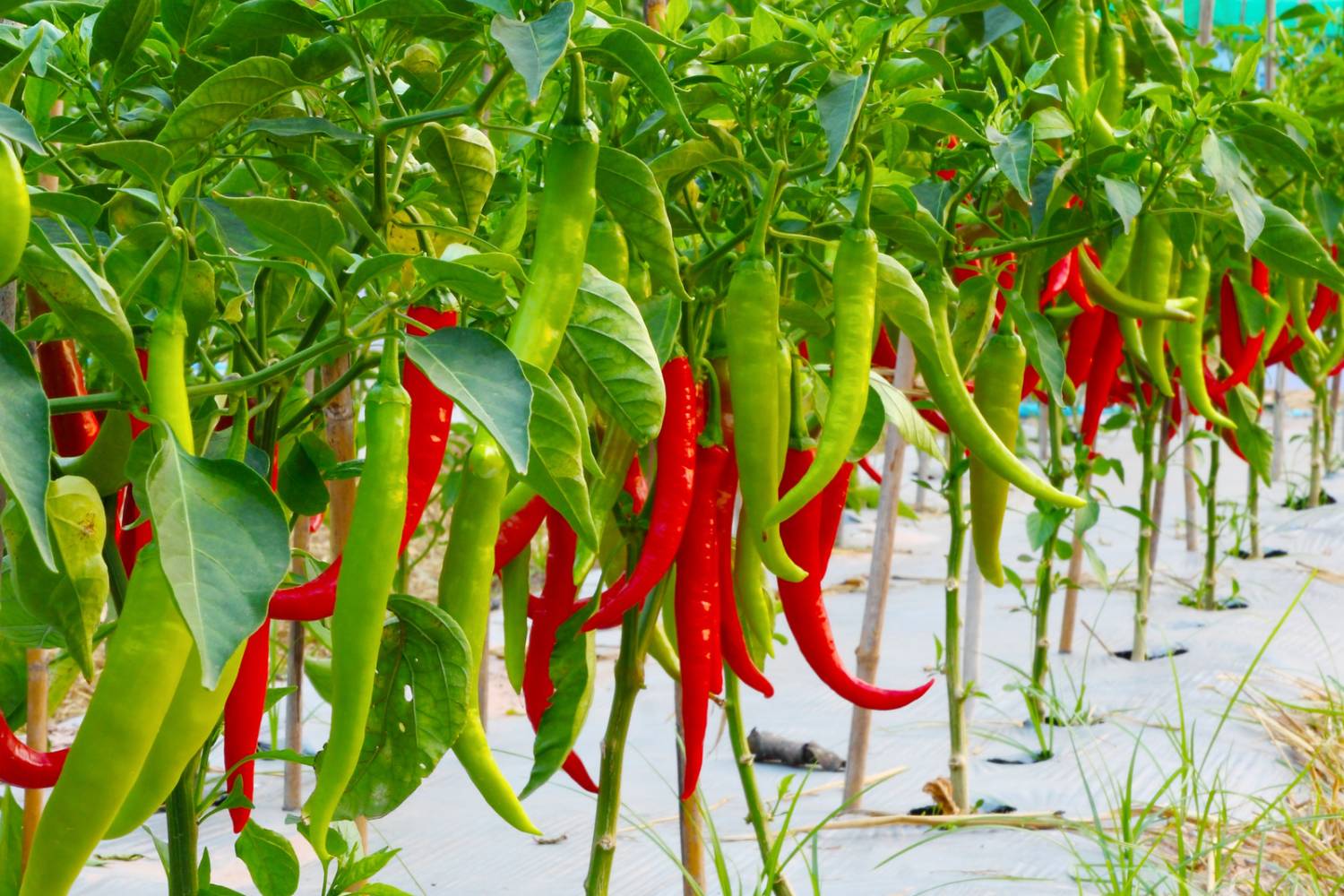Selecting the Best Fertilizers for Peppers: Professional Recommendations
Selecting the Best Fertilizers for Peppers: Professional Recommendations
Blog Article
Organic Vs. Synthetic Fertilizers: Which Is Best for Supporting Healthy And Balanced Pepper Plants?
In the realm of nurturing healthy pepper plants, the selection between artificial and organic plant foods stands as a critical choice with far-ranging effects. While both options purpose to give necessary nutrients to sustain plant development, the subtleties of their influence on the dirt, plant wellness, and the environment spark a debate that echoes throughout the horticulture neighborhood. Comprehending the distinctive advantages and possible risks of each plant food type is essential for pepper growers seeking to maximize their returns while keeping an eco-conscious and lasting approach.
Benefits of Organic Fertilizers
Organic plant foods provide an environmentally-friendly and sustainable technique to nourishing pepper plants, offering important nutrients without using synthetic chemicals. These all-natural fertilizers are stemmed from natural resources such as compost, manure, bone meal, and seaweed, advertising soil health and biodiversity. Unlike synthetic fertilizers, organic choices release nutrients slowly, making certain a consistent and well balanced supply for pepper plants to grow.
One significant benefit of natural fertilizers is their ability to boost dirt structure and water retention. By enhancing soil health and wellness, natural fertilizers promote valuable microbial task, which assists in nutrient uptake by pepper plants. In addition, organic plant foods decrease the danger of chemical run-off, safeguarding water sources from pollution and securing the environment.
Moreover, organic plant foods add to long-lasting soil fertility by advertising the growth of helpful soil microorganisms. These organisms aid damage down raw material, launching nutrients in a kind that is quickly available to pepper plants. best fertilizers for peppers. By cultivating a healthy and balanced dirt community, natural plant foods support lasting pepper cultivation methods that profit both plants and the atmosphere
Disadvantages of Artificial Plant Foods
Artificial plant foods, in contrast to their organic equivalents, present different disadvantages when used to nurture pepper plants, influencing both plant health and wellness and environmental sustainability. One significant downside of synthetic plant foods is their propensity to leach nutrients from the dirt promptly.
Additionally, the overuse of synthetic plant foods can add to water contamination. Excess plant foods not taken in by plants can wash away into water bodies, bring about eutrophication, where algae blooms deplete oxygen levels in the water, damaging marine life. Moreover, synthetic fertilizers are normally stemmed from non-renewable resources, such as nonrenewable fuel sources, adding to carbon exhausts and ecological degradation throughout their manufacturing.
Nutrient Absorption Comparison
Effective nutrient absorption plays an important role in the general wellness and development of pepper plants. When comparing organic and synthetic fertilizers in terms of nutrient absorption, natural plant foods have the advantage of offering an extra well balanced and slow-release see source of nutrients (best fertilizers for peppers). Organic fertilizers have a selection of macro and trace elements that are not just advantageous for the plants but likewise advertise healthy soil microbial activity, which assists in nutrient uptake. On the other hand, synthetic plant foods typically offer a fast launch of nutrients, which can result in seeping and overflow, leading to lower nutrient absorption prices by the plants.
Additionally, organic fertilizers boost soil structure and water retention ability, permitting pepper plants to gain access to nutrients much more effectively. This better dirt quality helps with origin advancement, enabling better nutrient absorption. Artificial fertilizers, although originally improving plant development due to their high nutrient focus, may impede long-term nutrient absorption by degrading soil wellness with time.
Environmental Influence Considerations

On the various other hand, artificial plant foods, although typically even more promptly available and concentrated to plants, can have detrimental impacts on the atmosphere otherwise applied effectively (best fertilizers for peppers). Their production needs high power inputs, causing greenhouse gas exhausts and adding to environment adjustment. In addition, the drainage of excess artificial fertilizers can contaminate water resources, causing eutrophication and harming marine environments.
Ideal Plant Food Practices for Peppers
When feeding pepper plants, maximizing nutrient uptake and reducing ecological influence are crucial factors to consider. To accomplish this, it is necessary to adhere to ideal plant food practices tailored to the particular needs of pepper plants. One crucial technique is to carry out a dirt examination prior to using any plant foods. This test can visit this web-site determine the pH degree of the soil and determine any kind of nutrient shortages, assisting you in picking the most suitable fertilizer formula.
Another important Resources practice is to fertilize pepper plants at the appropriate time. Normally, peppers benefit from obtaining plant food at planting and then once more when they begin to blossom. Over-fertilizing can cause nutrient inequalities and harm the plants, so it is essential to comply with suggested application prices.
Additionally, picking a balanced plant food with an NPK ratio that suits pepper plants' needs is basic. Eventually, integrating artificial and organic fertilizers carefully can aid nurture healthy and balanced pepper plants while reducing environmental impact.
Conclusion

Organic fertilizers offer an environmentally-friendly and sustainable technique to nourishing pepper plants, providing vital nutrients without the usage of artificial chemicals. Unlike artificial fertilizers, natural choices launch nutrients slowly, making certain a well balanced and constant supply for pepper plants to grow.
Synthetic fertilizers, in comparison to their organic equivalents, present various negative aspects when used to nurture pepper plants, influencing both plant health and wellness and ecological sustainability. When contrasting synthetic and natural plant foods in terms of nutrient absorption, natural fertilizers have the advantage of providing an extra balanced and slow-release resource of nutrients.Additionally, organic plant foods improve dirt structure and water retention ability, enabling pepper plants to access nutrients a lot more successfully.
Report this page